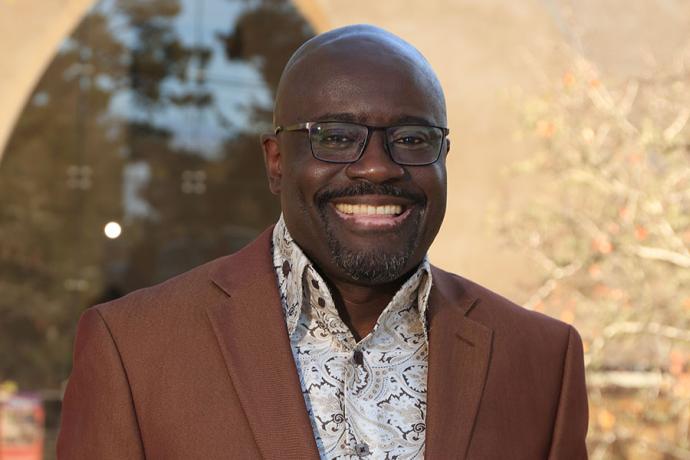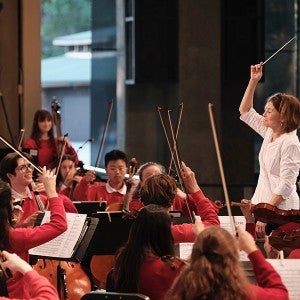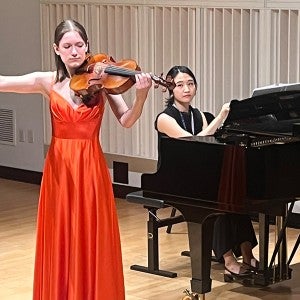Behind the Score: 'Unburied, Unmourned, Unmarked: Requiem for Rice' by John Wineglass
Musicologist and Interlochen Public Radio Music Director Dr. Amanda Sewell shares the story behind the first number of the Interlochen Arts Academy Orchestra's side-by-side performance with musicians from the New York Philharmonic.

On March 3, 2023, the Interlochen Arts Academy Orchestra will perform side-by-side with musicians from the New York Philharmonic under the baton of Dr. Leslie B. Dunner. The four-piece orchestral program serves as the second half of मुक्ति : MUKTI, an original multidisciplinary work inspired by themes of liberation created by the students of Interlochen Arts Academy. Below, musicologist and Classical IPR Music Director Dr. Amanda Sewell shares the story behind the program’s opening piece: Unburied, Unmourned, Unmarked: Requiem for Rice by John Wineglass.
The “rice” in the title of this piece refers to the crop that enslaved laborers reaped on plantations in the American South. The piece originated with a historian’s own biographical realization. Dr. Edda L. Fields-Black, a professor of history, is an expert on rice farming and farmers in West Africa and the antebellum United States. (If you’ve visited the National Museum of African American History and Culture in Washington, D.C., you’ve likely seen the permanent exhibit on rice farming that includes her research.) Her research examines how enslaved people were forced to use West African rice production technology to make South Carolina’s rice planters the most commercially successful in the United States.
Rice field conditions are terrible. Regular flooding, mosquitos, and swamp-borne disease killed tens of thousands of enslaved people. About a decade ago, Fields-Black made the horrifying discovery that the remains of her own enslaved ancestors lay in these rice plantation burial sites in South Carolina. They had lived and died on some of the very rice plantations she had studied. She has written that the gravesites are nearly impossible to find, because if they were marked at all, the markers were in complete disrepair. Concrete slabs barely cover wooden coffins in these graves belonging to her ancestors. Their graves were unmarked, their remains were unburied, and their lives were unmourned.
In what is perhaps not a surprising response from a professor and historian, Fields-Black set out to memorialize her family’s legacy using research, education, and the arts. She began the “Requiem for Rice” project with the intention of using a multimedia humanities project to teach slavery by putting it on the stage. In a process she has detailed in a blog called “Requiem for Rice,” she wrote a text and collaborated with composer John Wineglass to create the piece of music heard on today’s program. Wineglass and Fields-Black have even traveled to South Carolina rice fields to experience firsthand the conditions that the enslaved laborers endured. Leslie Dunner conducted the premiere of the piece in 2019 with the Colour of Music Festival Orchestra in Pittsburgh.
Musically and poetically, Requiem for Rice melds traditions of the European concert hall and the West African funerary practices. The piece is a requiem, which is a mass for the dead that composers from Mozart to Verdi to Faure have composed. Requiem for Rice also includes elements of casop, a ritual performed by Diola rice farmers in Senegal for suspicious or untimely deaths. The deceased person’s spirit explains how they died, and once the truth is revealed, their body is buried and the community is restored to peace. By blending the requiem mass and the casop ritual, Fields-Black and Wineglass help listeners mourn the lost lives of the enslaved laborers and then celebrate them and lay them to rest. As Fields-Black writes, this piece allows “oppressed and voiceless people to tell their stories, mourn their dead, and celebrate their contributions to the world.”
-
A graduate of Indiana University Jacobs School of Music, musicologist Dr. Amanda Sewell currently serves as the Music Director for Classical IPR. Her musicological scholarship has appeared in the Journal of the Society for American Music, the Journal of Popular Music Studies, and the Cambridge Companion to Hip Hop. Her first book, Wendy Carlos: A Biography, was published by Oxford University Press in 2020.





